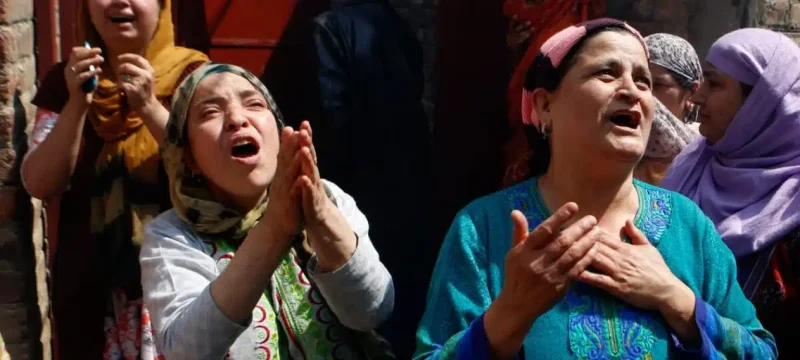On the occasion of International Widows Day, the world focuses its attention on the plight of widows and their struggles. Unfortunately, in Indian Illegally Occupied Jammu and Kashmir (IIOJK), Kashmiri women continue to suffer at the hands of Indian forces, enduring the devastating consequences of state-sponsored terrorism. According to Kashmir Media Service, the ongoing Indian oppression has left a staggering number of 22,960 women widowed since January 1989. Additionally, approximately 2,500 women are living as “half widows,” their husbands disappeared under mysterious circumstances, leaving them in a state of uncertainty and anguish.
Read more :
The Tragic Reality:
For over three decades, the disputed region of IIOJK has been plagued by violence and human rights violations perpetrated by Indian forces. Kashmiri women have become the silent victims of this conflict, as they bear the profound loss of their husbands, who have been killed or forcibly disappeared. These women are left to navigate life as widows in an environment of ongoing turmoil and uncertainty, exacerbating their already profound grief.
The Plight of Half Widows:
In addition to the thousands of widows, IIOJK also harbors a significant number of “half widows.” These are women whose husbands have gone missing, their fate and whereabouts unknown. The families of these women are caught in a state of limbo, unable to attain closure or move forward. They are left grappling with the emotional, social, and economic challenges of being half widows, struggling to provide for their families while seeking answers about the fate of their loved ones.
Systematic Oppression:
The widowing of Kashmiri women is not merely an unfortunate consequence of conflict but is rooted in a systematic campaign of oppression and violence. Human rights organizations have documented numerous cases of extrajudicial killings, enforced disappearances, and sexual violence perpetrated by Indian forces against Kashmiri civilians. The targeted nature of these acts compounds the suffering of Kashmiri women, who are left to pick up the pieces of their shattered lives and advocate for justice.
International Obligations and Calls for Action:
The international community has a moral responsibility to address the dire situation faced by Kashmiri women. Human rights organizations and activists have consistently urged governments and global bodies to take concrete action to end the human rights abuses in IIOJK. They emphasize the need for impartial investigations into allegations of violence, enforced disappearances, and the provision of justice for victims.
On International Widows Day, it is imperative that attention is drawn to the plight of Kashmiri women, who bear the scars of a long-standing conflict. Efforts must be made to raise awareness, mobilize support, and advocate for the protection of their rights. The international community must urge India to respect human rights in IIOJK and work towards a peaceful resolution of the Kashmir dispute, ensuring a brighter future for the widows and half widows who have suffered far too long in silence.









